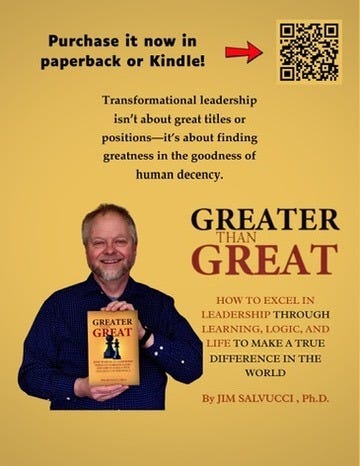Well, I had planned to have a new piece out this week, but my time at the World of Bob Dylan Conference in Tulsa got extended a bit by bad flying weather. You can console yourself by digging into this piece from last year—I’m quite proud of it—and by checking out my new book, Greater than Great, and my TEDx talk. I’m proud of them too.
Picture this scene: a sunny backyard afternoon, kids splashing in the pool, parents sipping drinks in lounge chairs. It’s the sort of day we all long for, an image of joy and frivolity. Now imagine there’s a large, foreboding wall that abuts the yard. And, let’s really push this scene, on the other side of that wall lies Auschwitz. The year, 1943. This jarring juxtaposition is the premise of Jonathan Glazer's film The Zone of Interest, a chilling portrayal of the Auschwitz commandant's family life—their routine ups and downs at the threshold of utter evil.
The film never penetrates the walls of Auschwitz, but the camp looms as an ever-present counterpoint to the family’s normality as the sounds of atrocity punctuate the banality. Gunshots shout sharply in the distance, guards bark angry orders, vicious dogs roar, and furnaces blast their fury. Glazer says he wanted to show that the perpetrators of the Holocaust weren’t “mythologically evil,” that they seemed disturbingly ordinary as they chose to perpetrate unparalleled human horror.
In Man’s Search for Meaning, the Austrian psychologist, philosopher, and Holocaust survivor, Viktor Frankl, writes of his experience:
[T]here are two races of men in this world, but only these two—the "race" of the decent man and the "race" of the indecent man. Both are found everywhere; they penetrate into all groups of society.
To be clear, Frankl isn’t drawing a simplistic line between the camp overseers (the perpetrators) as the indecent and the prisoners (their victims) as the decent. His observation comes immediately after recounting a surprising act of compassion by a camp foreman who risked his life to slip Frankl a piece of his own bread rations. This kindness, small but monumental, illustrates Frankl’s assessment of human nature that “the boundaries between groups overlapped” and that “No group consists entirely of decent or indecent people.” Decency can, indeed, exist in the most indecent of places.
Frankl uses the stark setting of Auschwitz, which he says, “tore open the human soul and exposed its depths,” to intrepidly explore those depths. As with The Zone of Interest, he is presenting ordinary humans—no comic book supervillainy or superheroism to be found here. The circumstances are extreme, the actions are extreme, but the people are not.
Which brings us back to that concentration camp foreman. Could he in fact be a member of the decent race? The foreman was himself a prisoner who gained privileges by overseeing his fellow captives. Such perfidious concentration camp trustees were regarded with a contempt that rivaled the internees’ loathing for the SS guards themselves. Could a single act of kindness launch him from the indecent race to the decent? Perhaps.
Frankl depicts this and other experiences within the confines of the concentration camp’s categoric verity of cruelty, dehumanization, and systematic genocide so that we can better grapple with the myriad complexities of collective human behavior and individual choice in our own seemingly more nuanced world. How do we, in our morally gradated existence, sort ourselves between the two races—decent and indecent? And what role does the leader play on this ethical stage?
First, we must acknowledge that everyone has at least a little decency and a little indecency in them. Or, more accurately, they have the potential for both decent and indecent behaviors. Frankl’s two races represent tendencies, not innate and immutable qualities. Even in the soul-baring absoluteness of a concentration camp, people have choices.
British psychologist and leadership consultant John Amaechi offers a valuable perspective here. He argues that workplace unconscious bias trainings—those absurd rituals—can’t simply erase deeply engrained biases even if they’re mandated by HR and accompanied by a stack of stale oatmeal cookies. Instead, Amaechi refocuses our attention on “the behaviors that result from those biases.” He maintains that it’s not what you think but what you do that determines, in Frankl’s terms, whether you’re a member of the race of the decent or the indecent.
Indeed, what you think is almost irrelevant. Amaechi observes that no one has ever been harmed by a thought alone. We harm others through what we choose to do or not do, not what we think, imagine, or feel. Furthermore, to count among the race of of the decent, you must be aware of your biases, develop your capabilities for decency, seek opportunities to apply those capabilities, and create the internal motivation to consistently behave decently. That, Amaechi says, is the formula for overcoming the indecent biases we all harbor. We, in fact, have agency to choose—howsoever twisted our inner workings. The notion is liberating.
I’ve argued along these same lines in the past, that it’s not good enough to be good deep down. That who you are is all about what you actually do, not what you intend. That wanting to do good is not the same as doing good. That you can’t be virtuous unless you actively and consciously practice virtue.
I’ve also argued that integrity’s not a part-time gig. Think of a chair. For that chair to have integrity, it must be whole. Remove one leg, and—boom!—it’s useless. The same goes for human integrity. You can’t compartmentalize it, practicing integrity here but not there. True integrity requires the choice to practice it consistently through all aspects of our lives.
Aristotle said,
Moral excellence comes about as a result of habit. We become just by doing just acts, temperate by doing temperate acts, brave by doing brave acts.
The key here is “habit.” Habits are regular behaviors—like the mundane inner workings of a family household. Aristotle suggests our virtuous actions must be consistent choices and not just circumstantial reactions, and I daresay Frankl and Amaechi would agree. An act of kindness is good but only if you’re truly and persistently kind does it matter. Choosing decency, then, must be the default choice—including and particularly when it’s difficult.
This perspective adds another layer to our understanding of that camp foreman's act of kindness. In an environment designed to crush the human spirit, where survival often meant embracing cruelty, his choice to share his meager rations was truly remarkable. It suggests a core of decency that persisted despite the most extreme pressure to conform to the enforced indecency of his environment. In The Zone of Interest we see the converse—the commandant and his young family as they eat their meals and go about their days unperturbed by the horrors unfolding literally within shouting distance of their sweet little household.
So, what does this mean for leadership? I’m frequently asked to distill the essence of great leadership into a single principle. If I’m feeling cheeky that day, I might respond, “don’t act like a jerk.” But I usually follow it with a more upbeat sentiment: “just start by behaving with decency.” That’s it.
Leaders become great by consciously and consistently making choices to live and behave as members of the race of decency even in indecent times. That’s the imperative of great leadership. Without that choice, the leader’s charisma becomes manipulation, vision becomes ambition, and decisiveness becomes tyranny, which is to say, the leader is really then just a boss. True leadership empowers individuals and inspires positive change because it’s committed to decency no matter what. We’ll all stumble, but as long as we align ourselves with decency and stick to it, we’ll continue on the path of great leadership.
What choices have you made that lead to decency or indecency? How do you guide others to make the choice of decent behavior?
The practice of consistent integrity is a hallmark of great leadership, and I can help.
Unlock the Great Leader Within! Download my free resource, the Transform To GREATness Toolkit, now!
I look forward to hearing from you.
Intro and outro podcast theme music by LiteSaturation from Pixabay.
Like the sound of my podcast?
I use Descript to record and edit, and if you record sound and video, so should you. Descript’s AI assistance has transformed my process and improved my recordings. Now editing is a breeze!
Interested? Use my affiliate link to try Descript for free: https://get.descript.com/t8zotbxmi6ds.
Try it and let me know what you think.
Need an experienced speaker or a podcast guest? Invite me!
If you want a TEDx speaker for your event or corporate training, click on my Speaker’s Page.
Looking for an articulate, dynamic, and insightful podcast guest? Check out my Podcast Guest Page.
About Dr. Sal
I founded Guidance for Greatness to mentor rising professionals after serving 30 years in higher education as an English professor, dean, and VP.
In my speaking, writing, and coaching, I blend academic credentials (Ph.D. from Toronto, certificates from Harvard and ACE) with practical coaching certifications (Tiny Habits, Thrive Global) to offer something different: leadership development built upon human decency.
My mission? To guide today’s managers to become the next generation of great leaders.
I offer practical, values-driven strategies so that managers can lead authentically.
Why? Because great leaders aren't just effective managers—they're teachers whose example makes a true difference in the world.
It’s here!
Are you tired of paging through unchallenging guru-driven leadership tomes! For a more pragmatic take on leadership, grab a copy of my new book, Greater than Great: How to Excel in Leadership through Learning, Logic, and Life to Make a True Difference in the World, out now!
Grab a copy for yourself and for that special leader in your life (or your lousy boss)!
And let me know what you think about my talk for TEDxClarkstown!

















Share this post